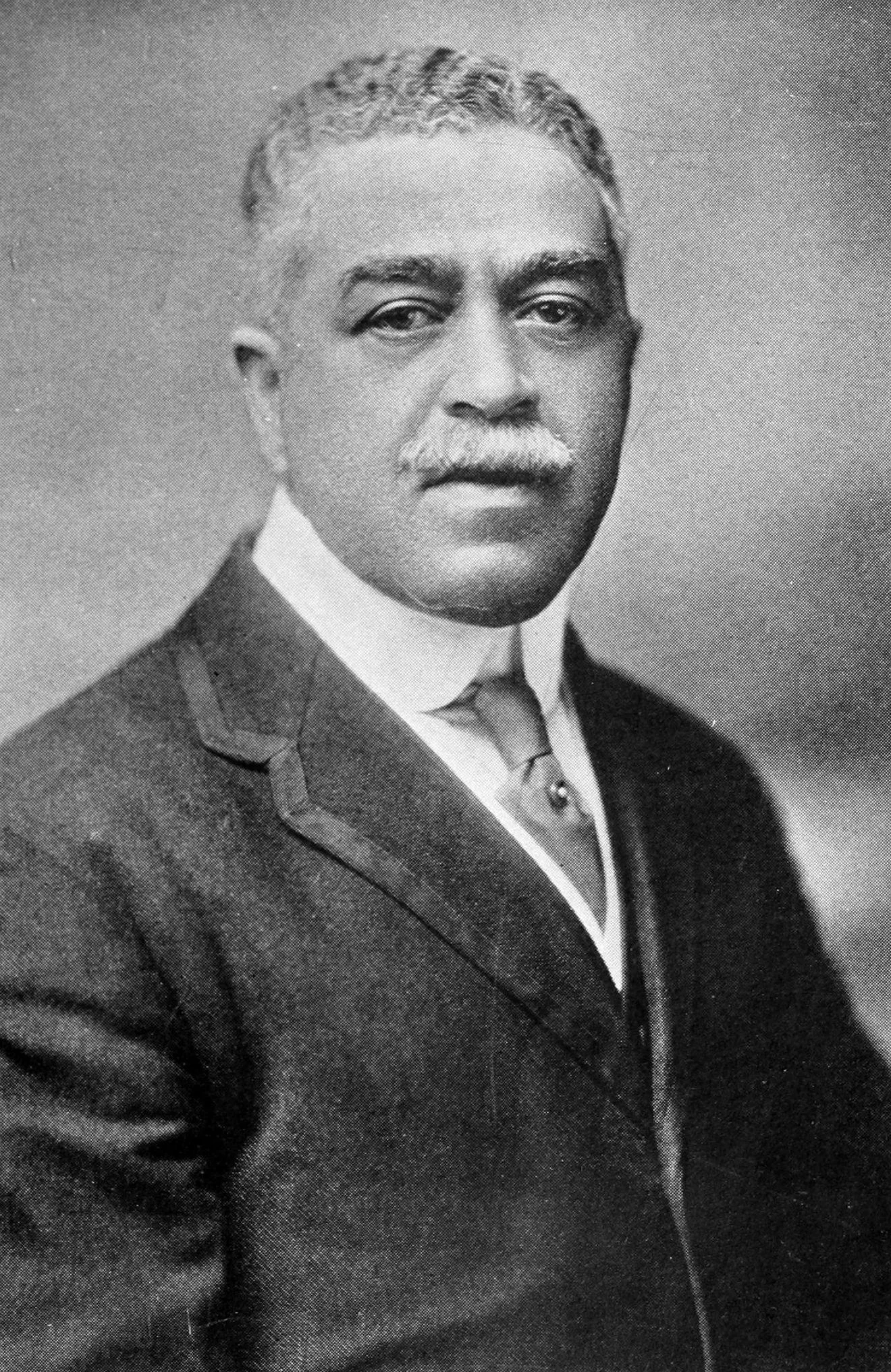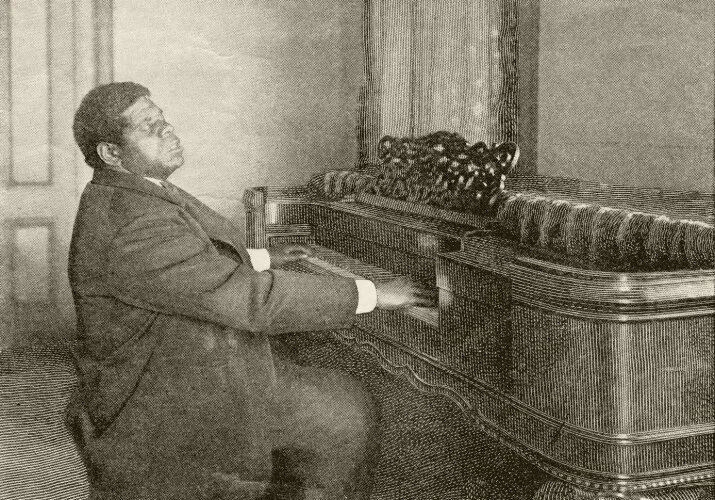Six Black-American Composers You Should Know About
It is important to remember and honor people that enhanced the beauty of this world through their talents. This post will recognize and honor six Black-American composers that you should definitely know about. Don’t forget to also download the sheet music collection we have compiled for free so you can share these wonderful pieces with your students.
1. Florence Price (1887 – 1953)
Career Highlights
Price was the first female African American composer to have a symphony performed by a major American orchestra.
She won a composition prize for her First Symphony.
Her Fourth Symphony, composed in 1945, was just recently found in her abandoned summer home.
Biography
Born in Little Rock, Arkansas, Florence Price was raised during a turbulent time in American history. It was her mom that first started teaching her piano from a very young age.
Graduating high school at the top of her class, she was a musical and academic genius; she proceeded to enroll in the New England Conservatory in Boston.
On her college application, however, she had to identify herself as a different race because of the widespread prejudice against people of color at the time. Her college's dean changed her life by guiding her towards composition and mentoring her along the way.
After graduation, Price became head of the Clark University music department. Facing many obstacles as an African American woman, she spearheaded her life by building a music studio and becoming the founder of Little Rock Club of Musicians in her hometown.
She moved to Chicago in search of a better life as an artist, which ended up becoming a turning point in her career as her music started flourishing. Her First Symphony got a prize that captured the attention of Frederick Stock and led to her premiere in the Chicago Symphony Orchestra.
She composed over three hundred pieces of music throughout her life. While her work was recognized at the time, it was not celebrated nearly enough because of her identity as a black woman. Apart from her poor health and risk of destitution, her racial identity served as her biggest obstacle.
In 1953, however, her work finally began getting the recognition it deserved. Excited to go to Europe and promote her work, she was not able to for health reasons that lead to her death from a stroke that year.
She passed away just before she was about to reach the stars and this unfortunate incident left her music untouched for years. In 2009, 30 boxes containing 200 of her wonderful compositions were discovered in her abandoned summer home. Sadly, we always recognize a genius after they are gone, but her music’s revival allows for her story to live on forever.
2. Harry Burleigh (1886 - 1949)
Career Highlights
Burleigh had a significant role in the development of American art songs and composed over two hundred works in the genre.
Burleigh introduced Antonín Dvorak to Black American music, which in turn influenced some of Dvorak’s most famous compositions such as the New World Symphony.
He was an accomplished singer in addition to being a composer.
Biography
Born in Erie, Pennsylvania, on December 2, 1866, Henry "Harry" Thacker Burleigh was an African American composer, arranger, and singer. He was known for his concert songs and his adaptations of African American spirituals. In addition to his compositions, Burleigh was well-known as an accomplished Baritone.
Growing up, Burleigh was surrounded by music and credited his mother as his first-ever music teacher. He was also deeply influenced by the plantation songs his maternal grandfather Hamilton Walters, an ex-slave and Erie's town crier, would sing to him. At the age of 26, Burleigh would begin his formal education at the National Conservatory of Music in New York.
The years Burleigh spent at the National Conservatory greatly influenced his career, mostly due to his relationship with the Conservatory's director Antonín Dvorák. After spending countless hours recalling and performing the African American spirituals and plantation songs he had learned from his grandfather, Burleigh caught Dvorak's ear and was encouraged by Dvorák to preserve these melodies in his own compositions. Dvorak in turn wrote melodies inspired by these songs in his New World Symphony.
Burleigh passed away at the age of 82 on September 12, 1949, and more than two thousand mourners attended his funeral. Burleigh was the first prominent Black American classical composer and helped bring spirituals to the concert stage.
3. Thomas "Blind Tom" Wiggins (1849 – 1908)
Career Highlights
Wiggins achieved tremendous celebrity status that no other African-American during his time could.
He composed his first piece of music when he was just five years old.
Several books and documentaries are dedicated to his life.
Biography
Thomas Wiggins was born blind and enslaved, however that did not stop him from reaching success. From an early age of four, he started playing piano and found he was born with a musical talent like no other.
Tom memorized pieces of music away from the piano and would sit down and be able to play through entire classical piano pieces that were highly complex.
At age eight, Tom's slaveholder, General Bethune, rented a concert hall for Wiggins to play his first composition in front of a wide audience. Taken aback, everyone in the audience could not believe that a "blind slave child," as he was called at the time, could play piano with such perfection.
Bethune profited from Wiggins’ concerts, making at least $5,000 a month! Bethune then hired out Wiggins to a concert performer named Perry Oliver.
Wiggins was taken to hundreds of cities where he performed many classics in theaters filled with people. Occasionally, he would astonish his audiences by turning his back to the piano amid playing. He was a man of many musical abilities, but unfortunately Perry Oliver took all the riches from Wiggins’ great success.
Although Wiggins died in 1908, he was properly recognized much later. While alive, he was seen as a mere money-maker for slave owners. His death was a catalyst in pioneering African-American composers that changed the music industry. Thomas Wiggins was a genius worthy of respect and was the first African-American composer to become so famous at a young age.
No memorial or public accolade can ever come close to recognizing his extraordinary musical abilities that changed the global music landscape for decades to come. What everyone saw as a disability was his strength, that strength was a power in talent that no one could ever fully comprehend.
4. Scott Joplin (1868 – 1917)
Career Highlights
Joplin was dubbed as the King of Ragtime at the turning of the 20th century.
He wrote two operas, one ragtime ballet, and more than 100 ragtime musical pieces.
His most famous works are the "Maple Leaf Rag" and "The Entertainer," which is still played today.
Joplin received a special posthumous Pulitzer Prize.
Biography
While there is a lack of official records pertaining to Joplin’s birth town, it is said that he was born somewhere between Arkansas and Texas. He had a likeness towards music from a very young age and started learning the piano as a child. Julius Weiss eventually became Joplin’s formal piano teacher and immediately noticed his apparent talent for music.
When Joplin became a teenager, he left his home to pursue a music career. He played in dance halls and bars that featured new music, which is how Joplin set the foundation for ragtime.
Joplin was part of the World's Fair in 1893 and following it he went back to Sedalia to join a cornet band. While he was not in the band long, Sedalia became his home which he would frequently return to. When he was not traveling, he worked in Sedalia as a pianist. He taught many young musicians and inspired a younger generation with his musical knowledge.
He worked on creating operas and wanted to popularize the genre. In 1907, he went to New York and settled there so he could secure funding for his opera, known as Treemonisha. Treemonisha highlighted the story of the rural African-American communities, however it did not receive the treatment it deserved.
Joplin worked with an owner and publisher of a music store in Sedalia, who gave him a 1 cent royalty on each sale. Within the first year, Joplin only sold four hundred copies of his composition, not profiting greatly from royalties. However in the year 1909 Joplin sold more than half a million copies, a trend which continued for the following twenty year.
He was a pioneer that brought his own touch, a unique style, which influenced the world of music immensely. Ragtime is now a part of the musical landscape in America, and the genre will live on for centuries to come.
5. Justin Holland (1819 – 1887)
Career Highlights
Holland pioneered 19th-century classical guitar in America.
He was an active participant in the movement for equality of African-Americans.
He worked all his life to end slavery and help African-Americans advance.
Holland's method book was one of the finest American guitar methods published in the 19th century.
Biography
Justin Holland was born into a free black family during slavery in the early 19th century. He moved to Massachusetts, following his parents death in 1833, which is where he met Senor Mariano Perez. Perez was Holland's first music teacher and helped lay the foundations of his artistic talent.
Holland studied the guitar and the flute but wanted to study music even further, therefore in 1841 he enrolled in Oberlin College. By 1845, he was teaching guitar and had settled in Cleveland, Ohio. Holland was prosperous in his field, gaining much-deserved recognition and respect, and became a household name.
Being a pioneer of classical guitar, his method book, Holland's Method, was like a bible for classical guitar students. He gained respect in the community by giving back as he was at the forefront of fighting for African-American rights and the abolishment of slavery. He attended many local, national, and state conventions with African-American leaders and actively participated in operations such as the Underground Railroad in Cleveland. He is even noted to have worked alongside Frederick Douglass.
He rarely performed in public and mostly resorted to teaching, composing, and arranging music for the guitar. Even though his arrangements were incredibly popular, few people that purchased them knew he was black. He felt it was important to share his musical knowledge with others, which he strived to do throughout his life. He was said to have a polite and calm demeanor, which is also reflected in his music.
Near the end of his life, people from both the black and white communities came to pay tribute to him for his contribution to the landscape of music within classical guitar in America.
Holland passed away in New Orleans in 1887 with his family by his side. His music is still remembered by many and is being taught and played increasingly around the U.S. Few people use their privilege and abilities to help others, however Holland did precisely that. Justin Holland changed the world of music while also fighting for the lives of people; he was a true crusader and musician of his time.
6. Thomas Flippin
Career Highlights
Winner of the University of Chicago Undergraduate Composition Prize
Has given lectures on composition at institutions such as Julliard and Yale University, and internationally at the Guitar Socity of Monreal
Biography
Thomas Flippin is a classical guitarist and composer born in 1983. He has performed in a wide variety of ensembles, from the classical guitar duo, Duo Noire, to performing avant-garde art songs on the theorbo as part of Alicia Hall Moran’s Black Wall Street or playing the banjo in the American Repertory Theater’s critically-acclaimed premiere of The Black Clown.
Flippin’s 2018 album, Night Triptych, was released on New Focus Recordings as the culmination of a 2015 project he launched with the Diller Quaile School of Music to address the lack of female representation in classical music. Featuring new works exclusively by leading women composers, it was praised for being a “truly pathbreaking recording” (AllMusic), that is “astounding” for its “sheer musicality” and “goldmine of ideas and feelings” (Stereophile). It was named one of the Best Classical Music albums of 2018 by both AllMusic and I Care if You Listen.
Recent concert highlights include performances at Carnegie Hall, Lincoln Center, National Sawdust, The Metropolitan Museum, Beijing’s Peking University, and the Art Institute of Chicago. Flippin has performed in concerts featuring MacArthur Fellow Jason Moran, Renee Fleming, Imani Winds, and members of Eighth Blackbird and the Emerson String Quartet. Upcoming projects include a new commission from GRAMMY-nominated composer Nathalie Joachim.
Flippin graduated with honors from the University of Chicago, where he was awarded the undergraduate composition prize. He then earned Master of Music and Artist Diploma degrees from the Yale School of Music. He studied composition in courses taught by David Lang, Martin Bresnick, and Michelle McQuade DeWhirst. Additional studies were with Ingram Marshall and John Anthony Lennon. His primary teachers were Benjamin Verdery, Denis Azabagic, and Dr. Julie Goldberg. He is currently on faculty at Concordia College Conservatory and the Diller Quaile School of Music and is an avid mountaineer.
Final Words
These composers were trailblazers, and we are lucky to have their music as part of our repertoire for new generations to discover. If you are looking for beginning and intermediate sheet music from these composers to diversify your student’s repertoire, look no further! We are excited to offer a collection of pieces from these composers to download for free.
Get your free sheet music by Florence Price, Harry Burleigh, Thomas Wiggins, Scott Joplin, Thomas Flippin and Justin Holland!






